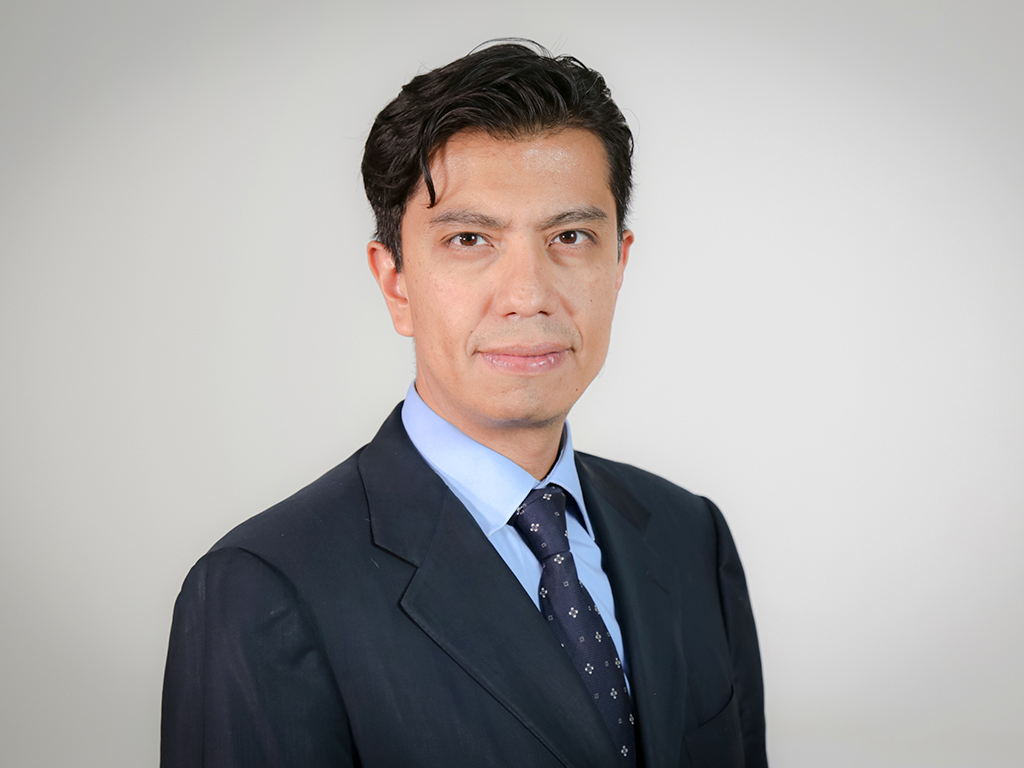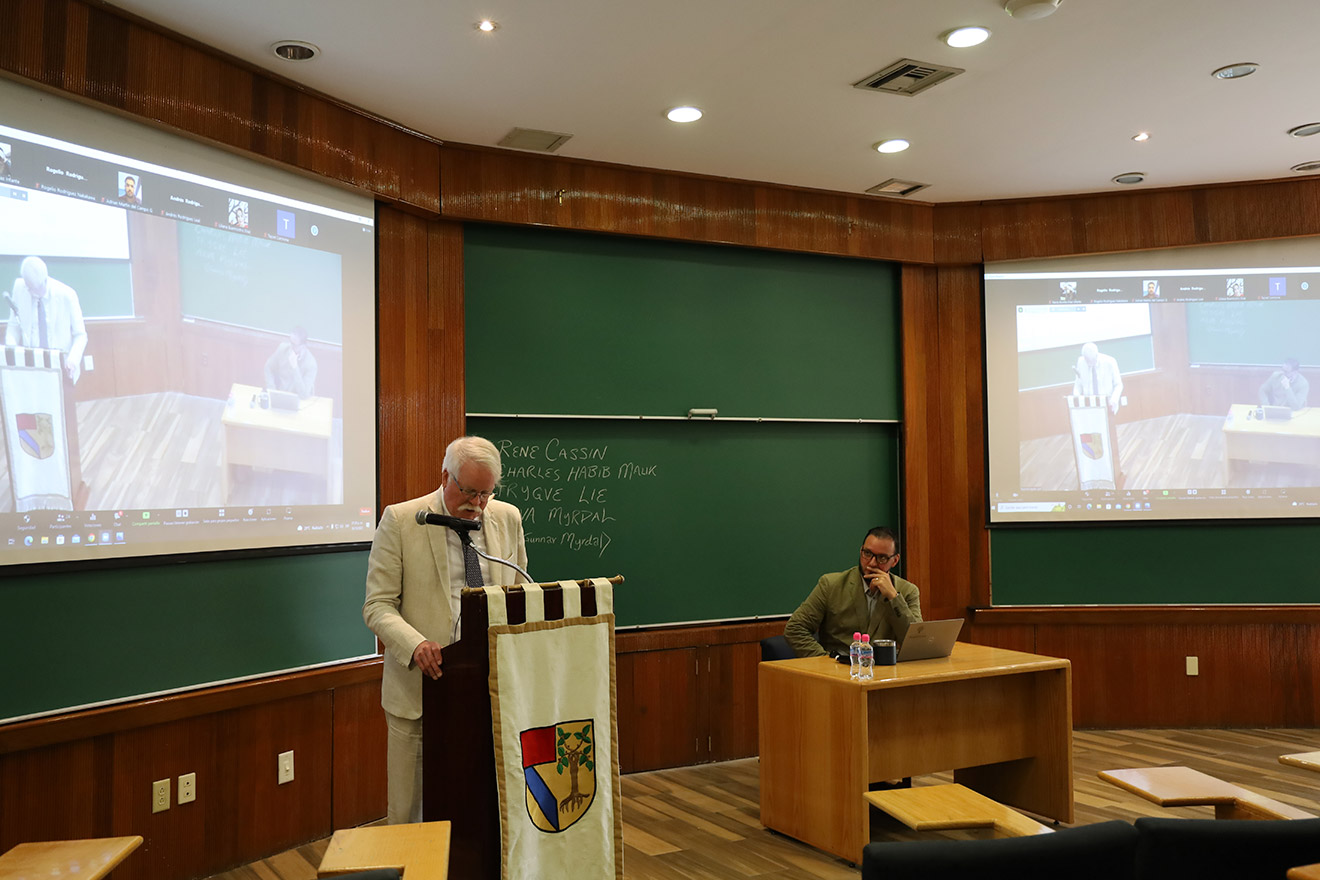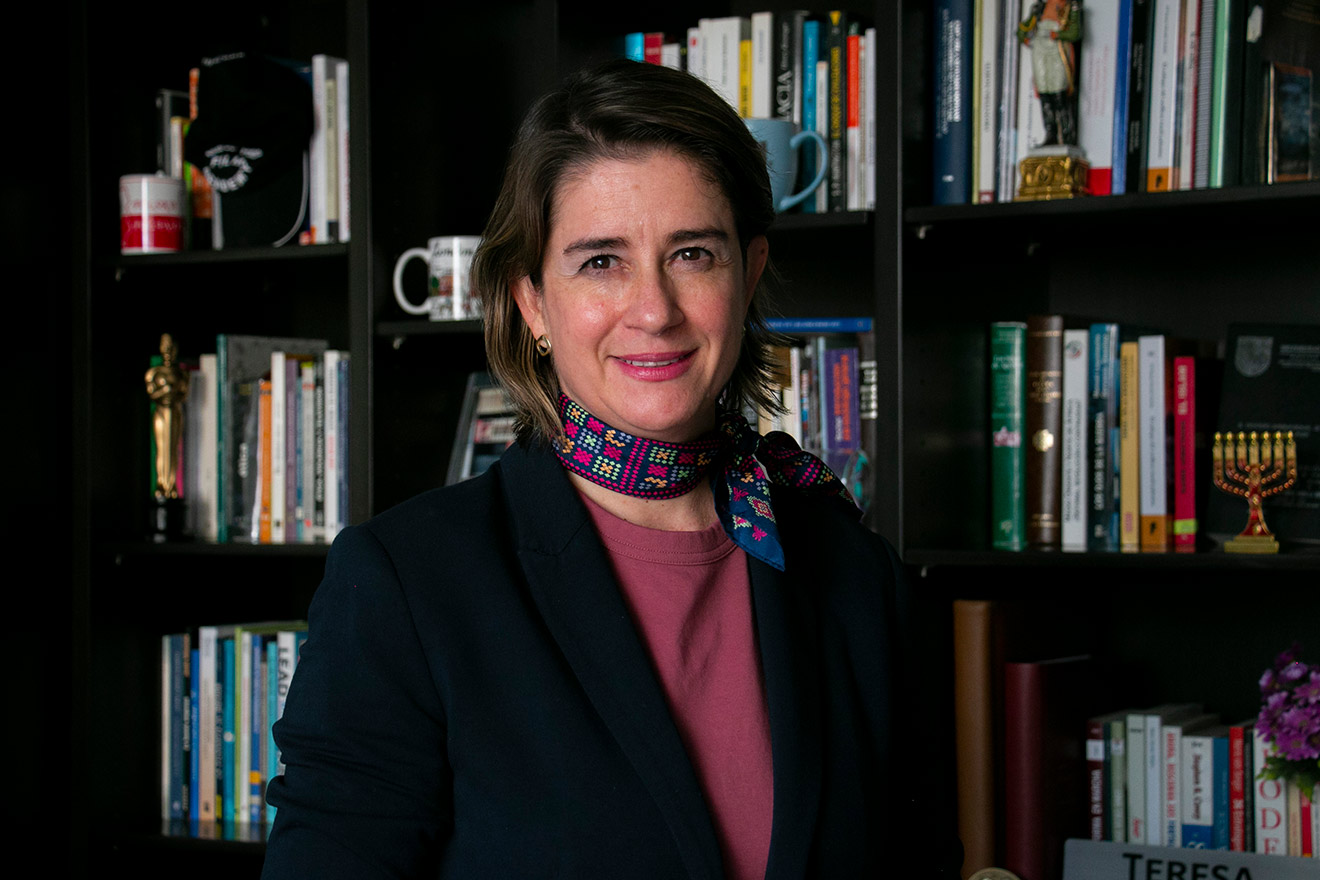Aguascalientes, Ags. January 24, 2024.- Dr. Federico Nassim Bravo Jordán is one of the most representative figures in the area of Humanities within the Universidad Panamericana at the intercampus level, since at the end of 2021 he inaugurated the line of research on philosophy of religion at the Institute of Humanities.
With a bachelor's, master's and doctoral degree in philosophy, Dr. Nassim has consolidated a professional career for more than 20 years in the field of philosophy.
"During my formative years, I became very interested in the academic and philosophical study of religious belief. I eagerly read several modern writers who reflected on religion-Jacobi, Schelling, Schleiermacher, Hegel, and especially Kierkegaard," he reports.
He also shares with us some of the history behind his most recent work, the book The Modern Experience of the Religious, coordinated by Nassim Bravo himself and Jon Stewart, published by Brill in 2023.

The Modern Experience of the Religious
Unlike theology, which studies religion rationally, but starting from certain dogmatic contents that are not questioned, the philosophy of religion tries to understand and examine the problematics of the different religious traditions: why do human beings feel inclined to believe in a divinity? What are the implications for freedom of believing in an omnipotent God? What is the origin of evil? Can there be a religion without gods (such as Buddhism or Confucianism)?
When I started this line of research, I was particularly intrigued by the question of how religion is experienced in modern times. When experimental science began to make great advances and discoveries, many intellectuals thought that this heralded the end of religions. But not only is religion not over, its reach and influence has increased almost everywhere in the world. So I wondered how people live their spirituality in a context where the validity of religious beliefs is often questioned.
"With this in mind, I contacted an old friend, Professor Jon Stewart, author of books such as Hegel's Interpretation of the Religions of the World: The Logic of the Gods (Oxford University Press) and A History of Nihilism in the Nineteenth Century: Confrontations with Nothingness (Cambridge University Press), and proposed that we put together a book to explore this question. He agreed and we immediately started inviting authors to share with us their ideas on the subject," he says.
Main reflections inspired by great philosophers
The starting point of the book is a historical moment: the Enlightenment of the 18th century. Enlightenment thinkers, such as David Hume, Voltaire or Immanuel Kant, thought that it would be best for society to be guided exclusively by reason. Since science has been so successful, why not do everything the scientific way? This, of course, questioned the continuity of the more traditional forms of religiosity, which were often based on faith and the following of authority figures. Can one continue to believe in a world where scientific reason predominates?
The fact is that people continued to believe, but in many cases religious traditions had to adjust to new modern times. It is not the same to be a believer in medieval Europe as in the 21st century. From this premise a number of questions arise that we try to answer in the book: What role should religion have in a secular or pluralistic society? How can human beings relate to God? Is institutional religion compatible with modern values such as civil liberties, democracy, pluralism or environmentalism? The authors reflect on some of these questions from their area of expertise.
A global picture within society
History tells us that, in spite of everything, religious traditions may change, but they will not disappear, even in the most difficult or adverse circumstances. This seems to indicate that religiosity is something natural in the human being, which in turn suggests that, if we want to understand human beings, their institutions, their relationships, their behavior, etc., it is indispensable to pay attention to the philosophy of religion.
"One need only glance at the news to see the role of religion in major world events. A good understanding of the mechanisms of religious beliefs and traditions helps us to better understand human behavior. Ideally, it would also help us to improve society," he says.
Several Western European countries are wary of the massive influx of North African migrants, most of whom practice Islam, which contrasts with the predominantly Christian European culture. In the United States, radical libertarians, often atheists, must establish alliances with evangelical voters in order to boost the candidates of the Republican Party. Buddhists in Tibet and the Uighurs of Xinjiang, a largely Muslim community, yearn for separation from China, one of the world's most secular countries. In the conflict between Israel and the Palestinians in the Gaza Strip, religious motives are constantly invoked, deliberately or not, from both Islam and Judaism.
"With this in mind, I am currently coordinating a special issue of the journal Filozofia (Bratislava, Slovakia) entitled Philosophy of Religion Today, in which I continue to explore these kinds of questions. This special issue will appear in October 2024", states Dr. Nassim.
It is worth mentioning that professors from Panamericana, such as Gustavo Esparza, Eduardo Charpenel, Fernanda Rojas and Luis Xavier López Farjeat, but also from other parts of the world, such as Lee Barrett, Daniel Conway, Peter Sajda and Jaroslava Vydrová, agreed to join this work. After months of work, The Modern Experience of the Religious appeared in 2023, published by Brill.
If you are interested in acquiring and getting to know this work, visit: https://brill.com/display/title/64130?language=en








